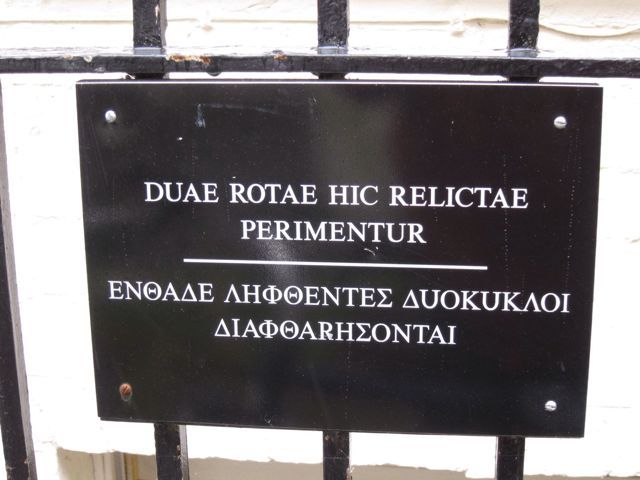Spotted this wonderfully-Cambridge sign yesterday:
I’ve never studied Latin, but I think I can make out enough; it says something like ‘Two wheels, that have been left here, will be destroyed’.
Can anyone translate the Greek? I presume it says much the same.
Actually, the first dictionary I looked at listed perimo as ‘to slay, destroy‘, and I rather like the idea that Cambridge streets are kept in order by The Slayer of Bicycles…

The 3rd Greek word is “Duocycloi”, which is clearly “bicycle”. My Greek vocab runs out there, though!
I always thought that was some (not so) secret Greek society headquarters. That could be that whenever I’ve passed that sign I’ve had a few pints in the Maypole and I’m musing conspiratorially.
You would expect the Greek to say the same as the Latin, but it goes (let me transliterate first):
Enthade lefthentes duokukloi diaftharesontai.
Literally something like:
“Here caught bicycles will be destroyed.”
Which in English idiom might read: Bicycles found here will be destroyed.
There may be an intended pun with the second word, as it sounds close to “left”, thus making the thing a mock Greek sentence. But the idea of the “Destroyer” stands and is a good one… what can befall to bicycles in the Duchy of Cambridge!
I love this sign too and I took a picture years ago for friends and students in Classics.
Thanks for your excellent blog and resources. Lovely pictures for Cambridge lovers.
[…] if you like this post, you might enjoy this one from 14 years […]